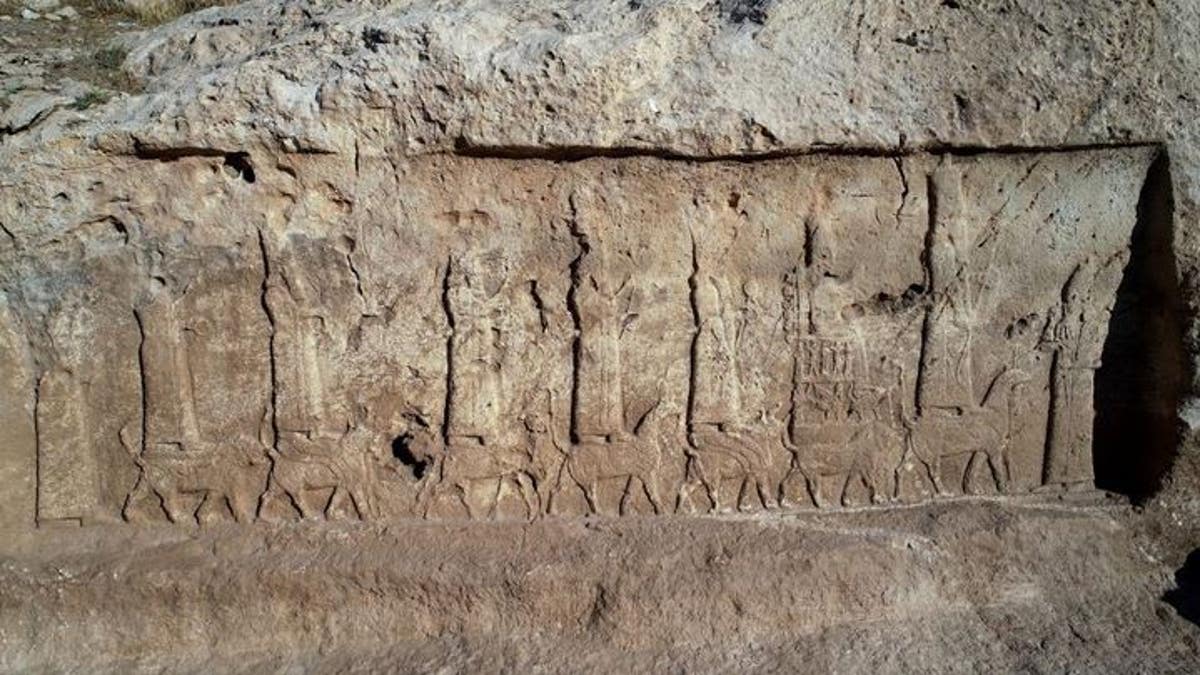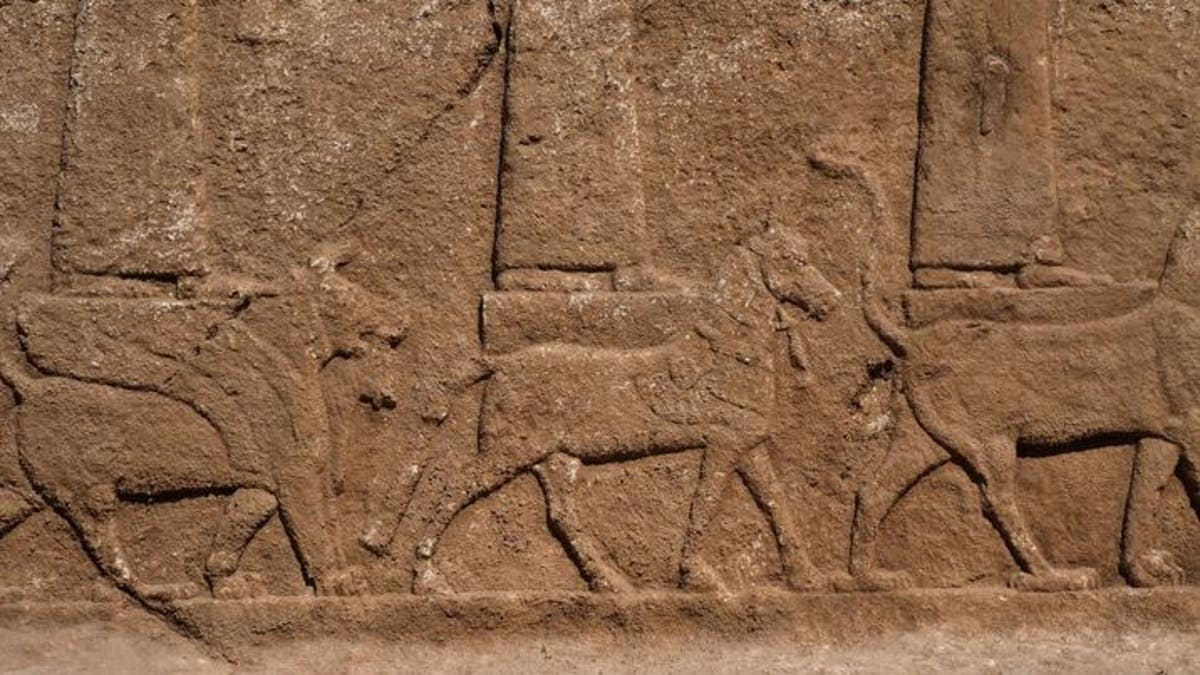Fox News Flash top headlines for Jan. 24
Fox News Flash top headlines for Jan. 24 are here. Check out what's clicking on Foxnews.com
Archaeologists in Iraq have unearthed stunning rock carvings showing an Assyrian king paying tribute to his gods with a procession of mythical creatures.
The carvings, which are almost 3,000 years old, were publicly unearthed in the Faida district, north of Baghdad, after being hidden for several years to protect them from being damaged by the Islamic State militant group.
With the exception of carvings at the archaeological site of Khinnis, discovered near the city of Mosul in 1845, "there is no other Assyrian rock art complex that can be compared with Faida," archaeologist Daniele Morandi Bonacossi of the University of Udine told Live Science.
GHENT ALTARPIECE LAMB OF GOD'S 'ALARMINGLY HUMANOID' FACE STUNS ART WORLD

The unearthed panels show a procession of the seven main Assyrian gods and goddesses, standing or seated on mythical animals, and the Assyrian king Sargon II. (Alberto Savioli/Land of Nineveh Archaeological Project/University of Udine)
ANCIENT SCUPLTURE LOOTED FROM AFGHANISTAN RETURNED AFTER BEING FOUND ON AUCTIONEER'S WEBSITE
The Faida reliefs depict a procession of seven Assyrian deities shown in profile standing on dragons, horned lions, bulls or horses, the researchers note.
Researchers said the carvings were first seen in the 1970s and site surveys began in 2012 — but the excavation work had to be halted when ISIS took over a significant chunk of territory in the region in 2014.
The carvings were found in bedrock above what was once an ancient canal built by Assyrian king Sargon for local irrigation.

Each of the Assyrian gods and goddesses are seen standing or seated on a mythical creature. (Alberto Savioli/Land of Nineveh Archaeological Project/University of Udine)
"It is highly probable that more reliefs and perhaps also monumental celebratory cuneiform inscriptions are still buried under the soil debris that filled the Faida canal," Morandi Bonacossi, who leads the excavations at Faida, told Live Science.









































